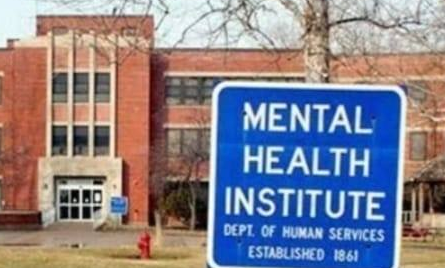[Rep. Kennedy\Health]
Rep Kennedy: “Sadly, insurance companies are exacerbating the mental health impact of the pandemic by making it needlessly difficult for patients to access antidepressants, antipsychotics, and other medications.”
Photo: Facebook
COVID-19 is wreaking havoc on Americans’ mental health.
One in three Americans suffers from severe anxiety, and one in four battles depression, according to recent Census Bureau data. Texts to federal emergency mental health lines are up 1,000 percent for the year. And a May survey from the University of Chicago found that four out of ten respondents felt a sense of hopelessness at least once a day.
Sadly, insurance companies are exacerbating the mental health impact of the pandemic by making it needlessly difficult for patients to access antidepressants, antipsychotics, and other medications. Their actions don’t just jeopardize Americans’ health. They also inflate health care spending.
I’ve long advocated for equal access to treatment for those with mental health and substance use disorders. And I’ve personally struggled with my own challenges. So, I know the importance of prescription drug regimens firsthand.
Depression, schizophrenia, bipolar disorder, and other mental health conditions are caused by chemical imbalances in the brain. Medication is a key tool in treating these conditions and enabling long-term recovery.
For example, selective reuptake serotonin inhibitors, a common antidepressant, can reduce symptoms of depression by up to 60 percent and lead to complete remission in many patients.
But the health insurance industry impedes patients’ access to such life-changing medications.
Consider the practice of “step therapy,” which forces patients to try lower-priced generic drugs before they are permitted to use newer, more effective ones. Patients and their doctors must prove the cheaper options don’t work before they “step” up to the advanced medicine.
That means patients’ symptoms must get worse before insurers cover prescriptions for more effective drugs.
Similarly, “prior authorization” practices require doctors to call an insurance company and obtain approval before prescribing certain drugs. This process is bureaucratic and time-consuming. The hope is that doctors just prescribe the cheaper medicines.
Over 90 percent of physicians say prior authorization negatively impacts clinical outcomes, according to the American Medical Association. And over half of all psychiatrists working in community mental health centers cited prior authorization, step therapy, and other formulary restrictions as the number one barrier to prescribing an ideal drug regimen, according to a survey from the National Council for Behavioral Health and the National Alliance on Mental Illness.
Roughly two-thirds of practitioners from that same survey said restrictive medication policies lead to increased hospitalization rates, emergency room visits, and soaring healthcare costs.
Insurance roadblocks are not just intrusive, they are outright counterproductive.
That’s because it’s cheaper to manage mental illness with medication than let it spiral out of control, which often leads to lengthy, expensive hospitalizations. For example, according to research from the Congressional Budget Office, boosting the number of prescriptions filled by Medicare beneficiaries by 1 percent saves the program 0.2 percent on other services, according to the Congressional Budget Office.
We recently celebrated the 30th anniversary of the Americans with Disabilities Act, a landmark piece of legislation—championed by my late father, Senator Ted Kennedy—that established protections for Americans struggling with mental illness. While we have made great strides, there’s still work to be done.
Our Congressional leaders cannot ignore the role insurer practices such as step therapy and prior authorization play in continued discrimination against those with mental health and substance use disorders. Patients and their families deserve better.
Patrick J. Kennedy, former U.S. Representative (D-RI), is the founder of the DontDenyMe.org and author of the New York Times bestseller “A Common Struggle: A Personal Journey Through the Past and Future of Mental Illness and Addiction.”












